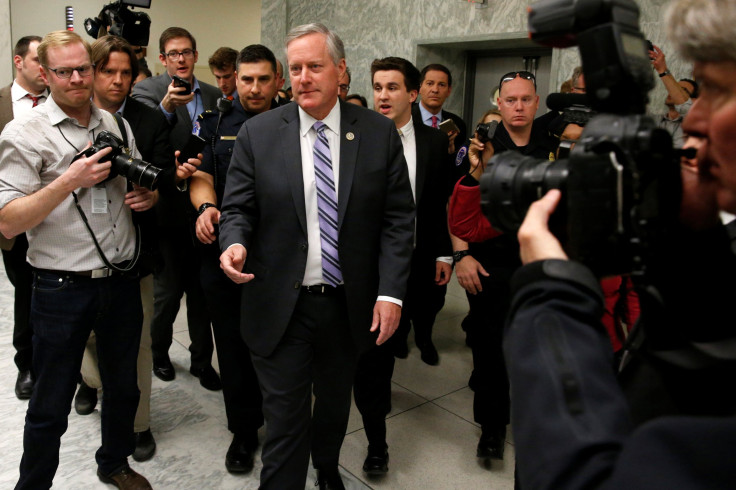Health Care Vote: What Is the Freedom Caucus? GOP Group Could Kill AHCA

In advance of the House vote on the Republican health care plan set for Friday afternoon, President Donald Trump tweeted about a small group of House Republicans known as the Freedom Caucus.
Trump was seemingly desperate to get the bill officially known as the American Health Care Act of 2017 (ACHA) through the House on Friday, even going so far as to threaten to give up his health care ambitions entirely and leave Obamacare in place if the bill doesn't pass.
So it was not surprising the president chose the Freedom Caucus as the target of his now-expected morning tweets. The roughly 30 members of the group (there is no official roster) have expressed disdain for the AHCA, which they see as "Obamacare lite" and not a full repeal of the landmark 2009 law.
Read: Paul Ryan Net Worth: Healthcare Plan Architect Worth Millions
Trump met with the group Thursday to elicit their support, an effort which failed, prompting House leadership to push the vote back from Thursday to Friday. With Democrats in universal opposition, the bill will fail if 23 Republicans vote against it. According to that math, Trump and Ryan need the Freedom Caucus to come to their side in order to fulfill the long-held Republican dream of repealing and replacing Obamacare.
So what, and who, is the Freedom Caucus?
The Freedom Caucus represents the conservative wing of the Republican party. On its Facebook page (the group doesn't have a website), the caucus says it "gives a voice to countless Americans who feel that Washington does not represent them. We support open, accountable and limited government, the Constitution and the rule of law, and policies that promote the liberty, safety and prosperity of all Americans."
Many of the caucus' members came to power in 2010 on the back of the tea party movement and its anger over Obamacare. The group officially formed in early 2015, and positioned itself as a group that could make or break deals during that year's budget fights. The real coming-out party for the caucus, however, was the battle over House leadership in late 2015 that pushed Speaker of the House John Boehner out of power.
Freedom Caucus member Rep. Justin Amash, R-MI, said at the time that Boehner operated a "top-down system," a charge that members of the caucus have levied against Republican leadership in the current debate.
If Exec branch tells Legislative branch "when 2 vote" "how 2 vote" & "what it will b allowed 2 work on if vote fails," is that a republic?
— Thomas Massie (@RepThomasMassie) March 24, 2017
The current chair of the caucus is North Carolina Rep. Mark Meadows, who was elected to Congress in 2012. As of Friday morning, Meadows was a holdout on the bill, despite the fact that the president joked that he would "come after" the congressman if he didn't vote for the bill.
While negotiations will continue throughout Friday before voting begins late in the afternoon, the Freedom Caucus was expected to continue to press for conservative reforms, which could alienate their moderate colleagues. Any bill would need to go to the Senate before becoming law, but the fate of Obamacare could be decided Friday, and members of the Freedom Caucus could be the ones who decide it.
© Copyright IBTimes 2024. All rights reserved.












